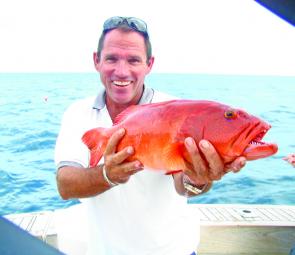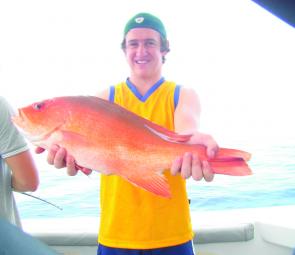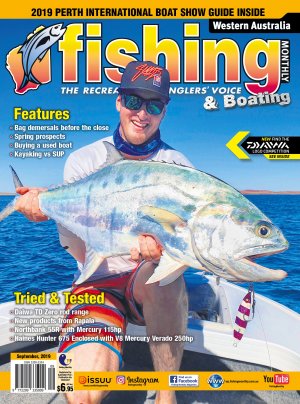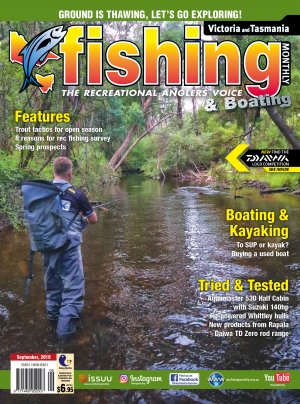As the wet season progresses and intensifies one's fishing opportunities do become limited and it is a matter of picking the right time to hit the water.
There can be some down time in waiting for those calm days accompanied by little or no rain. Most would remember recently what the wet season is all about when we received 276mm of rain in a 10 hour period, it was an awesome display of what Mother Nature can produce and can ultimately shut down the fishing for days on end. The massive amount of water captured in the area on this occasion resulted in the fresh water line reaching 20 miles offshore.
In saying this the wet season rain dictates what the fishing will be like down the track.
A solid wet ensures positive breeding of fish stocks and creates an abundance of food to last for some time. With the opening of the barra season, this fish will be high on the agenda for many. Ideally they are best targeted 3-4 days after a solid rain when a system is just beginning to return to some normality. They can be found right along a river system but they will tend to congregate to areas that offer an easy, continuous food supply. These hot spots are 'run-offs', namely in the form of small creeks and drains from the mangroves. These 'run-offs' can often be very subtle with only a trickle of water entering the system but what they are offering is food. Lure fishing is an ideal way of covering a lot of ground poking around these potential spots until the bite is found. Once found reverting to live bait is also a productive option.
The run out tide is the best time to practice this method and working right out to the edge of the dirty water line is where the action should occur. Keeping your presentation in this zone for as long as possible is vital. For example if luring, do 90% of your fishing in the zone and 10% retrieving it out of the zone. Keeping your presentations on the smaller size will ensure they resemble something of similar size coming from the run off. No doubt mangrove jack will be a welcomed by-catch when concentrating in these areas as well.
Other areas worth inspection once the calm days present themselves include along the beaches and surrounding rocky headlands where a lot of bait is flushed to during a solid rain. Again, lure fishing will allow you to cover a lot of ground and if the water is discoloured really slow down your retrieve to allow the fish to get a good look at what you are offering. The flats are another area worth exploring, ideally trying to source grunter and blue salmon using fresh, dead baits. Also when the waters are murky across these shallower areas the old mud crab doesn't mind a wander out into the open and dropping a few pots should be productive, particularly along the edges of the mangroves.
Offshore the reef fishing can be tough at this time of year and you can expect quality rather than quantity. Fishing deeper in more than 25m of water on rubble patches or isolated bommies can be rewarding however don't expect those hot bites like that of the winter. Fish have shown little food in their stomachs lately and often if there's any it is tiny baitfish.
Recent trends indicate that a few good fish can be acquired at each spot then it often shuts down. Nannygai can be very patchy and the coral trout finicky but there have been some good catches of red emperor and tea-leaf trevally to compensate for the lack of action. A good indication as to whether the fish are hungry or not is whether the smaller baitfish such as sweetlip, hussar or pink eared emperor are feeding. If they are, then it is likely the bigger preferred species will be as well.
The Spanish mackerel are here and there but they have been found on certain reef systems where there is plenty of current hitting the northern end with plenty of bait in the area. When they are feeding on the surface in a frenzy they'll hit any presentation thrown at them. If we have experienced a lot of rain in the region make sure you get well clear of the fresh and sometimes this will mean travelling out that bit further than normal.
Fishing this time of year can be a hard task but if you persist it is a time when catches can be on the bigger end of the scale. Hopefully we'll get enough gaps in between inclement weather to keep us all happy and land a few decent fish. Fingers crossed we can also dodge those cyclone bullets
Reads: 1158
Don't expect quantity but you can expect some quality during the wet season

Reds will be on in February and be a tasty target for reef fishers




